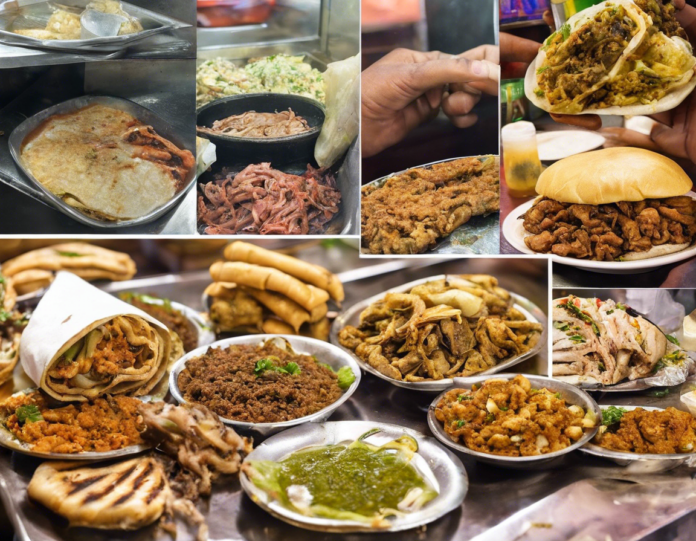In recent years, there have been several reported cases of food poisoning linked to the consumption of Shawarma in the Goregaon area. Food poisoning occurs when someone consumes food or drink that is contaminated with harmful bacteria, viruses, parasites, or toxins. It can lead to symptoms such as nausea, vomiting, diarrhea, abdominal pain, and fever, and in severe cases, it can be life-threatening. In this article, we will discuss how to stay safe and avoid food poisoning when eating Shawarma in Goregaon.
What is Shawarma?
Shawarma is a Middle Eastern dish made from meat (such as chicken, beef, lamb, or turkey) that is slow-roasted on a vertical rotating spit. The meat is thinly sliced and served in a pita bread wrap or on a plate with various toppings and sauces. Shawarma is flavorful and popular street food in many parts of the world.
Risk Factors for Food Poisoning from Shawarma
There are several risk factors that can contribute to the occurrence of food poisoning from Shawarma:
Improper Temperature Control
- Bacteria can multiply rapidly in food that is not stored or cooked at the correct temperatures.
- Make sure that the Shawarma meat is cooked thoroughly and is hot when served.
Cross-Contamination
- Cross-contamination can occur when pathogens from raw meat are transferred to cooked meat or other food.
- Ensure that the person handling the Shawarma uses separate utensils for raw and cooked meat.
Poor Hygiene Practices
- Dirty hands, surfaces, or utensils can introduce harmful bacteria to the Shawarma.
- Choose a Shawarma vendor that practices good personal hygiene and maintains a clean food preparation area.
Inadequate Refrigeration
- Meat that is not stored at the proper temperature can become a breeding ground for bacteria.
- Verify that the Shawarma vendor stores their meat in a refrigerator and not at room temperature.
Tips for Safe Shawarma Consumption
To reduce the risk of food poisoning from Shawarma, follow these tips:
Choose a Reputable Vendor
- Select a Shawarma vendor that has a good reputation for food safety and cleanliness.
- Look for vendors with a high turnover rate, as this indicates fresh ingredients.
Observe Food Handling Practices
- Watch how the Shawarma is prepared and ensure that the person handling the food follows hygienic practices.
- If you notice any concerning practices, such as handling money and food without changing gloves, it’s best to avoid eating there.
Check the Temperature
- The Shawarma meat should be hot when served to kill any harmful bacteria.
- If the meat looks undercooked or has been sitting out at room temperature, it’s safest to decline eating it.
Avoid Suspicious Smells or Signs of Spoilage
- Foul odors, mold, or discoloration on the Shawarma meat are signs of spoilage.
- If the Shawarma doesn’t look or smell right, it’s best to err on the side of caution and not consume it.
Consider Opting for Vegetarian Options
- If you’re concerned about the safety of the meat, consider opting for vegetarian Shawarma options.
- Vegetarian Shawarma is made from ingredients like falafel or grilled vegetables and carries a lower risk of contamination.
What to Do If You Suspect Food Poisoning
If you experience symptoms of food poisoning after consuming Shawarma, it’s essential to take the following steps:
-
Stay Hydrated: Drink plenty of fluids to prevent dehydration caused by vomiting and diarrhea.
-
Seek Medical Attention: If your symptoms are severe or persistent, seek medical attention promptly.
-
Report the Incident: Inform the local health department about your illness to prevent further cases.
Frequently Asked Questions (FAQs)
-
Can reheating Shawarma make it safe to eat?
Reheating Shawarma may help kill some bacteria, but it doesn’t eliminate all toxins. It’s best to avoid consuming leftover Shawarma if you suspect it has been mishandled. -
Is it safe to eat cold Shawarma that has been refrigerated overnight?
Cold Shawarma that has been refrigerated promptly after cooking is generally safe to eat within a day or two. However, always use your judgment and discard if it looks or smells off. -
Are there any specific groups of people more susceptible to food poisoning from Shawarma?
People with weak immune systems, pregnant women, young children, and the elderly are more vulnerable to foodborne illnesses. They should take extra caution when consuming Shawarma. -
Can food poisoning from Shawarma be fatal?
In severe cases, food poisoning can be life-threatening, especially if caused by harmful bacteria like E. coli or salmonella. It’s crucial to seek medical help if symptoms are severe. -
Should I avoid eating street food altogether to prevent food poisoning?
While street food can pose a higher risk of contamination, it’s possible to enjoy it safely by choosing reputable vendors, observing food handling practices, and opting for freshly cooked items.
In conclusion, enjoying Shawarma in Goregaon can be a delightful experience if consumed safely. By being mindful of the risk factors for food poisoning, following food safety tips, and knowing how to respond if illness occurs, you can savor this exotic dish without compromising your health. Remember, prioritizing food safety is key to relishing culinary adventures without any unpleasant aftermath.








